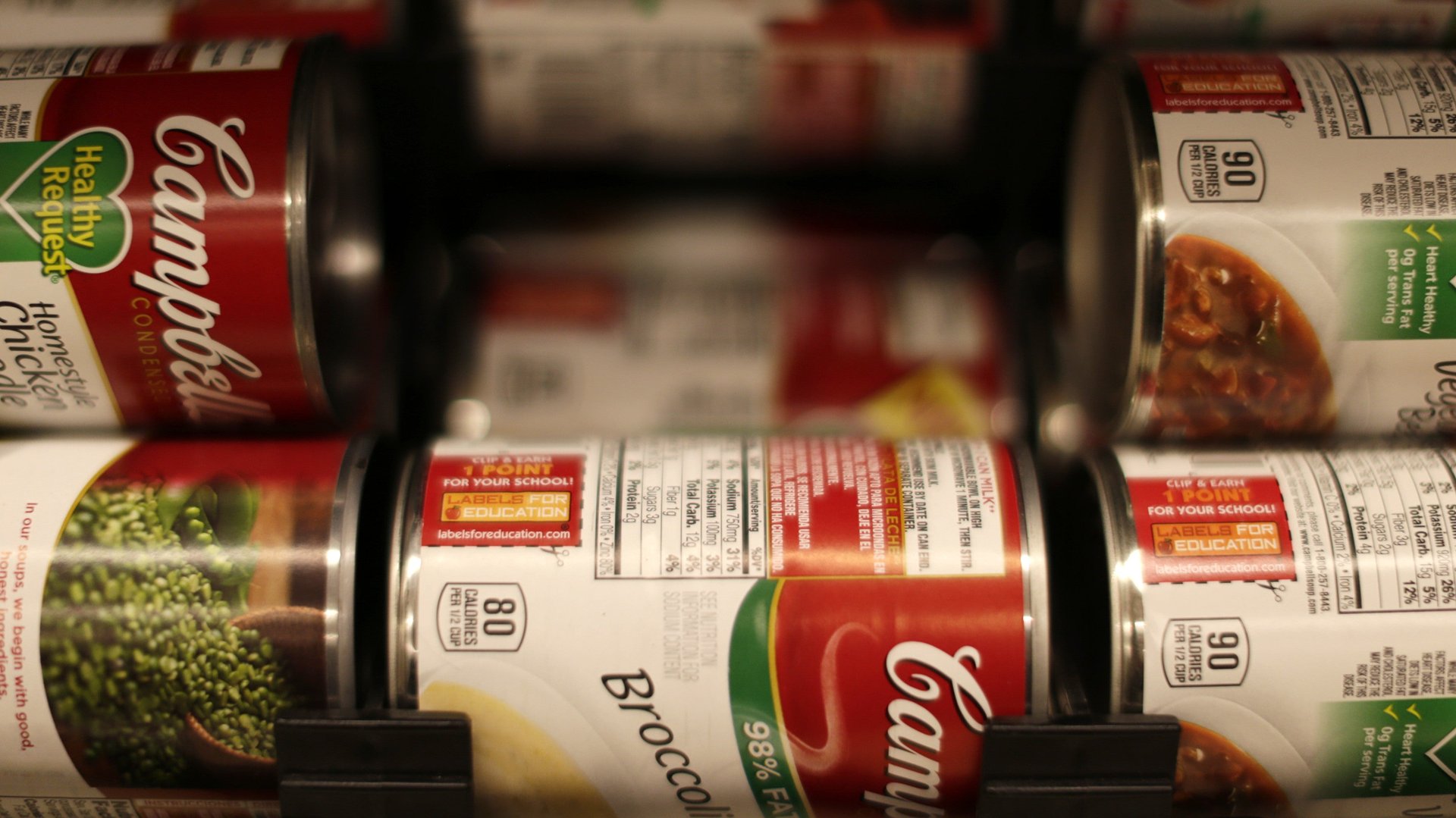Campbell Soup is gambling that a tough stance on GMOs will win back American consumers
Campbell Soup Company has a dilemma.


Campbell Soup Company has a dilemma.
With its condensed soups, Pepperidge Farms breads, Prego tomato sauces, and numerous other brands, Campbell is a classic big food company. But recently, America has begun to reject big food, and Campbell along with it. The company’s sales have fallen for the last four fiscal quarters straight.
“We’ve seen consumers’ distrust of big food companies increase,” Mark Alexander, president of Campbell America’s simple meals and beverages division, told investors in July. ”We are at a critical juncture, and success requires more than just a shift in strategy.”
As part of an overhaul, Campbell in July said it would drop artificial colors and flavors and move away from high fructose corn syrup in the US. The company also rolled out a website—What’s In My Food—to address “the top concerns people have about packaged food.”
Now it’s going one step further. In a major break with big food, Campbell on Jan. 7 announced its support for national GMO labeling requirements in the US. “The overwhelming majority of Americans support the labeling of GMO foods,” a spokesman for Campbell’s told Quartz. “We arrived at this decision because the consumer has spoken—they want to know how their food is made and we believe in transparency.” The company also argues that a national standard makes more sense than “a patchwork of state-by-state labeling laws.” (A highly contested law in Vermont will require disclosure of genetically engineered ingredients beginning in July.)
By coming out in support of GMO labeling, Campbell is likely hoping to accomplish two things. The first is breaking away from that dreaded big-food image. While plenty of other corporations have announced plans to nix artificial colors and flavors, fewer have promoted ID’ing GMOs in their products.
The second is slightly trickier. Campbell is attempting to walk a fine line between assuaging GMO skeptics—now a powerful and lucrative faction of US consumers—and offending GMO advocates. The case against GMOs is full of errors and fraud, yet that hasn’t stopped many Americans from demanding foods without them. And companies that brand themselves as fresh and organic have happily obliged. Campbell, which has purchased Bolthouse Farms and Plum Organics to bolster its premium offerings, would undoubtedly like to recruit more of the health-conscious, GMO-loathing crowd.
At the same time, Campbell states in its release that it “continues to recognize that GMOs are safe, as the science indicates that foods derived from crops grown using genetically modified seeds are not nutritionally different from other foods.” Campbell also says that around 75% of its products contain ingredients made from GMO corn, canola, soybean, or sugar beets.
Campbell’s gamble, then, is that by supporting GMO labeling it will be seen as a progressive corporate leader even as it continues to sell products that contain GMOs. And that, with its faith renewed by transparency, America will start buying Campbell’s soups (and breads, and pasta sauces) once more.